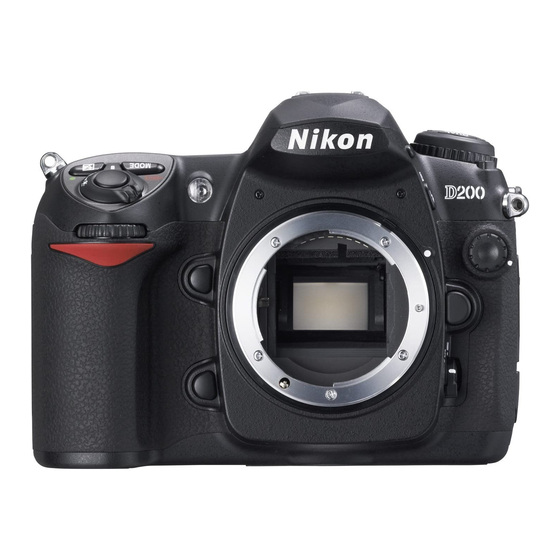Nikon D200 Brochure - Page 8
Browse online or download pdf Brochure for Camera Accessories Nikon D200. Nikon D200 14 pages. Exploring
Also for Nikon D200: Brochure & Specs (13 pages), Brochure (7 pages), Setup Manual (2 pages), Brochure & Specs (18 pages), Specifications (2 pages), Features & Comparison Chart (1 pages), User Manual (19 pages), Specifications (2 pages), Operation Manual (23 pages), Quick Start Manual (2 pages), Manual (25 pages), Quick Start Manual (9 pages)

